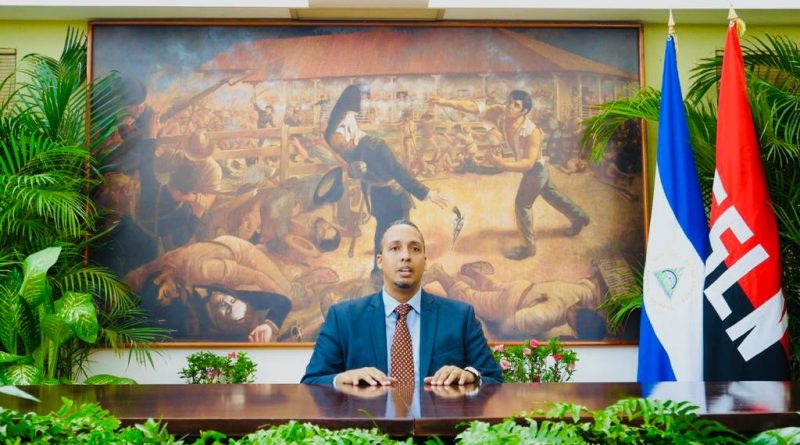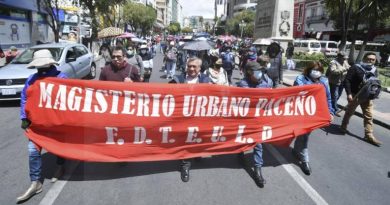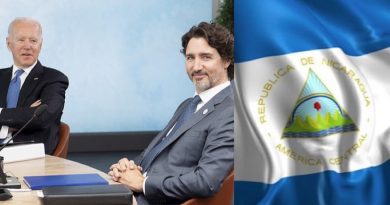Nicaragua’s Remarks at Reparations International Conference
Nicaragua participated in the International Conference on Reparations being held August 4th-6th by the Global Afrikan Congress and supported by the University of the West Indies in Barbados. Below are the remarks given by Nicaragua’s Presidential Adviser for International Relations and the Greater Caribbean, Michael Campbell.
Watch the full remarks here.
REMARKS BY THE DELEGATION OF NICARAGUA IN THE INTERNATIONAL CONFERENCE ON REPARATIONS
BRIDGETOWN, BARBADOS, 4TH – 6TH AUGUST, 2022
Dear Sisters and Brothers, Government Representatives, Comrades, Friends, Allow me to begin by expressing warmest regards on behalf of Comandante Daniel Ortega, President of the Republic of Nicaragua and Comrade Rosario Murillo Vice President, as well as on behalf of the People and Government of Reconciliation and National Unity of the Republic of Nicaragua.
We would like to express our gratitude to the Brotherly People and Government of the Republic of Barbados and especially to Her Excellency Prime Minister Mia Mottley and to His Excellency the Minister of Foreign of Affairs, Senator the Honorable Jerome Walcott, for hosting this important event. Likewise we thank and congratulate the Global Afrikan Congress Secretariat for the all the effort put into the organization process.
The Transatlantic Trade of Enslaved Africans was a perverse industry fueled by the cruel ambitions of governments, companies and individuals, who for the most part, still refuse to make reparations for the terrible damage inflicted upon the African Continent, on more than 20 million human beings, who for more than 400 years were victims of this scourge, as well as upon all of us, the more than 200 million Afrodescendants, who currently live in the Americas.
This blatant crime against humanity was an industry, given its motivation were supply and demand, profit maximization and cost efficiency. Slavery constitutes the most brutal version of capitalism, dehumanizing human beings, legally modifying the status of an individual, to categorize him or her as an object and property of another individual or group of individuals. One in three enslaved Africans perished at sea, others in the ports and auctions of North America, Central and South America and the Caribbean. The vast majority of slaves died before reaching 30 years of age, as a result of brutal conditions of forced labor, rape and merciless torture inflicted upon them by “masters”, in huge sugar, banana and cotton plantations, in the mines or while working in a wide array of government projects.
Therefore, every aspect of the so-called western society and capitalist economy, including the lush lifestyles of the wealthy few, is a result of slavery and a profound debt is owed to all the men and women who endured this most nefarious industry.
On the Caribbean Coast of Nicaragua, the Afro-descendant Creole People achieved emancipation from slavery after 1786, when Spain and England signed the Convention of London, which recognized the sovereignty of Spain over the territory of Nicaragua and the Mosquito Coast, although the later was never colonized neither by Spain nor Great Britain.
The Convention established a deadline of one year for all subjects of the British Crown to leave the Mosquito Coast or become subjects of the Spanish Crown. Thus in 1787, 3,000 individuals, including 573 British and free people and 1,677 enslaved Africans, left the Mosquitia, now Caribbean Nicaragua and sailed to Belize, Jamaica, Great Britain and the United States.
In the rush, thousands of enslaved Africans, were able to escape and achieve their freedom. These newly free individuals, called themselves Creoles and managed to advance by dedicating themselves tirelessly to education; becoming accountants, doctors, dentists, lawyers, engineers, musicians, choreographers, chefs, diplomats, high-ranking government officials, poets, and cultural managers.
The story of the Afro-descendant Garífuna People is just as poignant. 225 years ago, on 11th March 1797, the People of Joseph Chatoyer were expelled from their homeland on the islands of Saint Vincent and the Grenadines, first to the barren island of Balisu and later to the coasts of Honduras, Belize, Guatemala and Nicaragua, where they found refuge, established settlements and began to prosper. In Nicaragua, the Garifuna People established the communities of La Fe, Brown Bank, Justo Point, Saint Vincent and Orinoco, along the Pearl Lagoon basin, where they maintain their language and cultural heritage and continue to honor the memory of Paramount Chief Joseph Chatoyer.
After the annexation of the Mosquitia to Nicaragua in 1894, successive Nicaraguan governments, sought to marginalize the indigenous and afrodescendant peoples of the region, resulting in widespread discrimination and poverty, as well as a severe lack of basic services. This situation continued until the victory of the Sandinista Popular Revolution in 1979, and the promulgation of a new Political Constitution in 1987, that recognized the multiethnic and pluricultural nature of the Nicaraguan nation, being the first Magna Carta in the entire hemisphere to establish full citizenship for Afrodescendant and Indigenous Peoples.
Today, Nicaragua advances by celebrating the three tributaries of her national identity: Indigenous, African and European, assimilating different perspectives and taking full advantage of the creativity that arises from a culturally diverse population. The Government of Reconciliation and National Unity of the Republic of Nicaragua, led by Comandante Daniel Ortega Saavedra and Comrade Rosario Murillo Zambrana, has promoted a Government Model of Christianity, Socialism and Solidarity, which is the spearhead of a Sandinista effort to guarantee the equitable participation of all the Nicaraguan Population in the development of the nation, with a clear understanding that each and every Nicaraguan, without distinction, has the responsibility to contribute to the collective wellbeing.
The National Human Development Plan was launched in 2007, with the aim of promoting economic growth and macroeconomic stability and with specific objectives related to employment, poverty reduction, equality, nutrition, access to health and education, increased coverage of drinking water and sewage, electricity, telecommunications, roads and highways, citizen security, agricultural productivity, protection of forests, lakes and rivers and the promotion of private investment and trade, among others. The implementation of this Plan, which now is in its fourth phase, 2022 – 2026, has created unprecedented prosperity for
afrodescendant communities and has defined a clear path toward sustainable and inclusive human development.
Nicaragua recognizes the determined effort of the Caribbean countries that have promoted the Ten-Point Plan of Action of the Reparations Commission of the Caribbean Community (CARICOM) and applauds the efforts of this commission to correct the injustices derived from the genocide of native indigenous peoples and the transatlantic trade of enslaved Africans, reaffirming the urgent need to demand effective reparations, redress, compensation and other measures at the national, regional and international levels.
Nicaragua, continues to extend its fraternal embrace and absolute solidarity with the victims of the transatlantic slave trade and with their descendants, who today, continue to suffer the consequences of an unpunished crime.
Thank You Very Much.
Watch our recent interview with Presidential Advisor Michael Campbell on Latin America Review here.
By Kawsachun News



